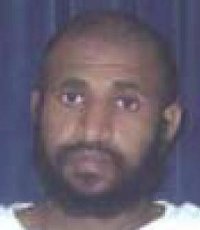|
|
|
Adnan Muhammad Ali al Saigh. Photo courtesy of the NEFA Foundation. |
A former Guantanamo detainee who joined al Qaeda in the Arabian Peninsula (AQAP) after completing a rehabilitation program in Saudi Arabia has reportedly turned himself in. The Saudi Interior Ministry announced on Monday that Adnan al Sayegh surrendered after expressing “remorse for his actions and his desire to return home and give himself in to the security service,” Reuters reported.
Al Sayegh was included on Saudi Arabia’s most wanted list in February 2009. Ten other former Guantanamo detainees were also included on the list. Al Sayegh is the third ex-Gitmo detainee who appeared on that list only to later surrender.
In January 2009, an ex-Gitmo named Abu al Hareth Muhammad al Awfi appeared on a propaganda tape announcing AQAP’s formation. Also appearing in the tape was his fellow Gitmo alum, Said al Shihri. [See LWJ report, Return to Jihad.] The following month the Saudis announced that al Awfi had turned himself in. Al Shihri remains AQAP’s deputy leader.
In 2010, another ex-Gitmo detainee named Jabir Jubran al Fayfi was returned to Saudi custody. The Saudis credited al Fayfi with providing intelligence that was used to break up AQAP’s cargo planes bomb plot, but precise details of al Fayfi’s return to custody and role in that intelligence success remain murky.
A “medium” risk
According to a leaked Joint Task Force Guantanamo (JTF-GTMO) memo, US intelligence officials concluded that al Sayegh was a “medium” risk who “may pose a threat to the US, its interests and allies.”
In the leaked memo, dated Mar. 18, 2005, JTF-GTMO officials recommended that al Sayegh be transferred to “the control of another country for continued detention.” A little more than one year earlier, JTF-GTMO recommended that al Sayegh remain in the Department of Defense’s custody. US officials decided to act on the revised recommendation and Al Sayegh was transferred to Saudi Arabia in May 2006.
JTF-GTMO determined that al Sayegh was a “low-level al Qaeda fighter” and a member of Osama bin Laden’s 55th Arab Brigade, which was al Qaeda’s “primary formation supporting Taliban objectives” in pre-9/11 Afghanistan. Bin Laden also participated “closely in the command and control of the brigade,” according to JTF-GTMO. The 55th Arab Brigade was led by Abdel Hadi al Iraqi, a top bin Laden lieutenant who is currently held at Guantanamo.
The 55th Arab Brigade fought side by side with the Taliban before the Sept. 11 terrorist attacks and also shared training camps and other facilities. During a combatant status review tribunal at Gitmo, an American military official asked al Sayegh if he was affiliated with the Taliban. Al Sayegh responded, “I am.”
Al Sayegh traveled to Afghanistan in early 2001 in response to a fatwa issued by a Saudi cleric named Sheikh Hamoud Al Aqla. Later that year, al Aqla died in Saudi Arabia. By that time an untold number of young Saudi men had answered al Aqla’s call to support the Taliban. Al Aqla also openly endorsed the Sept. 11 attacks.
After arriving in Afghanistan, al Sayegh was trained at al Qaeda’s al Farouq training camp and fought on the front lines against the Northern Alliance.
At least one other jihadist in US custody identified al Sayegh as being affiliated with Lashkar e Taiba (LeT). According to the leaked JTF-GTMO file, John Walker Lindh, who also fought for the Taliban, told authorities that al Sayegh “worked with the LeT, giving a briefing about Kashmir, and being responsible for issuing and controlling weapons at the front lines.”
Both Lindh and al Sayegh survived the Qala-i-Jangi fortress uprising in Mazar-e-Sharif, Afghanistan in late 2001. Al Qaeda and Taliban fighters were held at the fortress by the Northern Alliance, but rebelled against their captors. The result was a violent clash in which a CIA officer was killed.
Lindh was ultimately tried in the US and sentenced to jail. Al Sayegh was freed from Guantanamo, then escaped to Yemen and is now reportedly back in Saudi custody.








